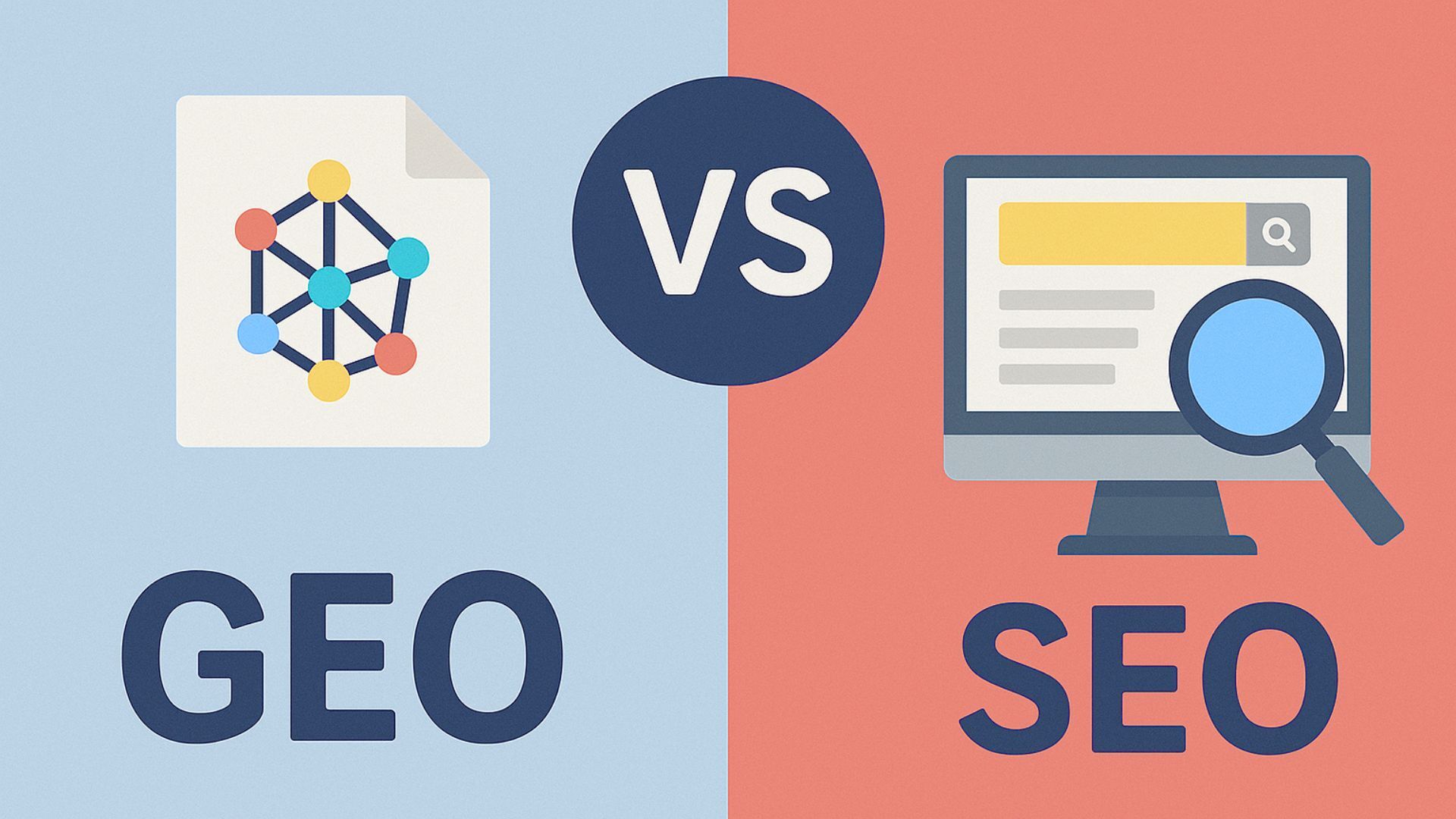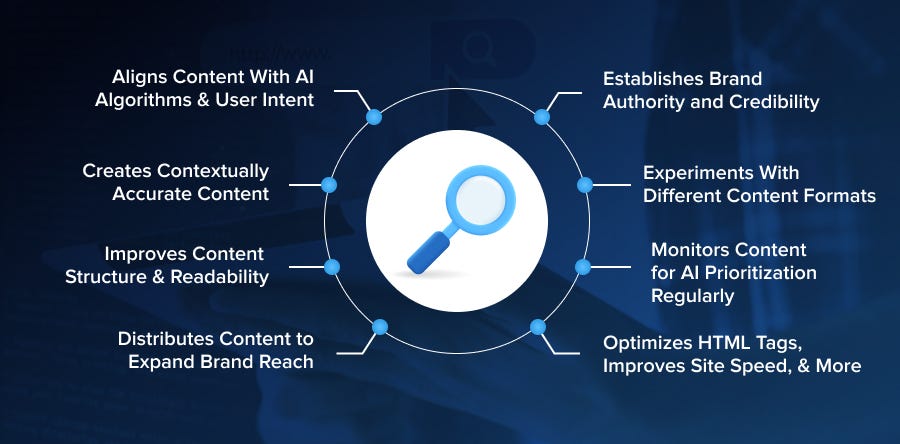Generative Engine Optimization (GEO) vs Search Engine Optimization (SEO)
The digital world is rapidly shifting. While Search Engine Optimization (SEO) has been the backbone of online visibility for decades, the rise of Generative AI has given birth to a new concept: Generative Engine Optimization (GEO). Businesses, bloggers, and marketers must now optimize not only for traditional search engines but also for AI-powered answer engines like ChatGPT, Gemini, Bing Copilot, and Perplexity.

What is SEO?
SEO focuses on improving a website’s ranking on search engines like Google or Bing. It involves optimizing keywords, backlinks, content quality, technical performance, and user experience to drive traffic through organic search results.
What is GEO?
GEO is about ensuring your content is picked up, understood, and cited by Generative AI engines. Unlike SEO, which aims for visibility on results pages, GEO ensures your content is the one chosen and summarized in AI-generated answers. With users increasingly asking AI for direct responses instead of “searching,” GEO has become a necessity.
Key Differences Between GEO and SEO
| Aspect | SEO | GEO |
|---|---|---|
| Primary Goal | Rank high in Google/Bing search results | Be cited in AI-generated answers |
| Content Style | Keyword-rich, long-form, backlinks | Clear Q&A, structured data, conversational |
| Measurement | SERP rankings, organic clicks | AI visibility, citation in generated results |
| User Behavior | Users browse multiple results | Users get a single summarized answer |

Why GEO is Becoming Essential
- AI-first search: More users ask ChatGPT or Gemini than Google simple queries.
- Reduced clicks: Google’s AI Overviews limit organic traffic from traditional SEO.
- Authority shift: AI engines prefer structured, authoritative, and conversational sources.
- Future-proofing: Optimizing for GEO ensures visibility in the AI-driven era.

Strategies for GEO
- Write in Q&A formats (anticipate real user queries).
- Use structured data, headings, bullet points, and FAQs.
- Ensure authoritative sourcing with citations and reliable references.
- Keep content fresh and updated to stay relevant in AI results.
- Adopt a conversational tone that aligns with AI responses.
The Future: GEO + SEO Together
SEO is not dead, and GEO will not replace it completely. Instead, businesses must adopt a hybrid strategy: continue optimizing for Google search rankings while also preparing content for AI visibility. The winners of tomorrow will be those who combine both approaches effectively.

In the era of AI, don’t just rank, be the answer.
